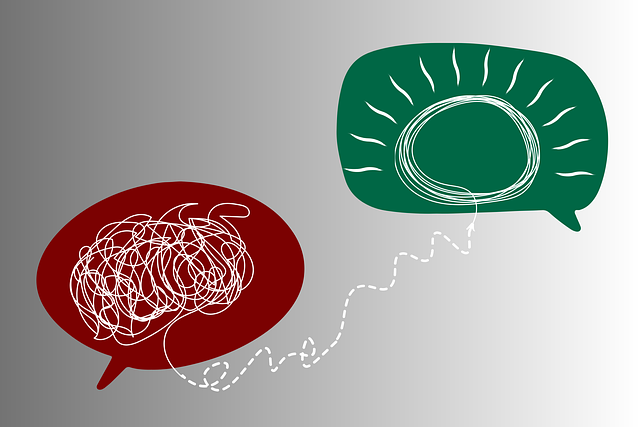Emotional intelligence (EI), a powerful tool recognized by Lakewood Psychosis Therapy, transforms mental health and well-being through emotion management and empathy. Development involves holistic strategies like Social Skills Training and cultural sensitivity, leading to better emotional control, improved decision-making, stronger relationships, and overall enhanced well-being. Lakewood Psychosis Therapy guides individuals to overcome psychological barriers, gain self-compassion, boost self-esteem, and build resilience against mental health challenges, ultimately strengthening their EI.
Emotional intelligence (EQ) is a powerful tool that enables individuals to navigate life’s complexities with grace. Understanding and cultivating EQ offers numerous benefits, from improved relationships to enhanced decision-making. This article delves into the world of emotional intelligence, exploring its significance and providing practical strategies for development. Furthermore, it highlights the transformative power of Lakewood Psychosis Therapy as an effective method to enhance EQ and foster personal growth.
- Understanding Emotional Intelligence and its Benefits
- Strategies for Developing Emotional Intelligence
- The Role of Lakewood Psychosis Therapy in Enhancing EQ
Understanding Emotional Intelligence and its Benefits

Emotional intelligence (EI) is a powerful tool that enables individuals to understand and manage their own emotions as well as empathize with others. This cognitive capability goes beyond mere awareness; it involves using emotional insights to guide thoughts and actions, fostering positive interactions and relationships. Lakewood Psychosis Therapy recognizes the profound impact of EI on mental health and overall well-being.
Developing emotional intelligence offers a multitude of benefits. It serves as a confidence booster, helping individuals navigate social situations with greater ease and assertiveness. Moreover, it facilitates resilience building, enabling people to bounce back from setbacks and adapt to change. Effective stress management is another advantage, as emotionally intelligent individuals are better equipped to handle stressful circumstances without becoming overwhelmed. Through Lakewood Psychosis Therapy’s guidance, one can learn to harness the power of EI to enhance their personal and professional lives.
Strategies for Developing Emotional Intelligence

Developing emotional intelligence (EI) is a multifaceted process that involves self-awareness, understanding others’ emotions, and managing one’s own feelings effectively. At Lakewood Psychosis Therapy, we believe in empowering individuals through various strategies tailored to their unique needs. One key approach is Social Skills Training, which focuses on teaching and reinforcing appropriate nonverbal communication, active listening, and empathy—skills crucial for navigating relationships and social situations with greater ease.
Moreover, cultivating Cultural Sensitivity in Mental Healthcare Practice is integral to EI development. Recognizing and respecting individual cultural backgrounds allows for more personalized therapy, fostering a deeper connection between therapist and client. This, in turn, enhances the therapeutic process, enabling better emotional regulation—a critical component of EI. Through these strategies, individuals can learn to recognize and manage their emotions, leading to improved decision-making, enhanced relationships, and overall well-being.
The Role of Lakewood Psychosis Therapy in Enhancing EQ

Lakewood Psychosis Therapy plays a pivotal role in enhancing emotional intelligence (EQ) by addressing core psychological aspects that often hinder its development. This therapeutic approach delves into the mind, helping individuals understand and manage their emotions effectively. Through structured sessions, patients learn to recognize emotional triggers, develop strategies for regulating their responses, and cultivate empathy towards themselves and others. By integrating these skills, individuals can build inner strength, fostering resilience against mental health challenges like depression prevention.
Moreover, Lakewood Psychosis Therapy facilitates self-esteem improvement by challenging negative thought patterns and beliefs that may have taken root over time. This process empowers individuals to view themselves and their emotions with greater compassion, leading to improved decision-making and healthier interpersonal interactions. Ultimately, the integration of these techniques contributes significantly to enhancing EQ, enabling individuals to navigate life’s complexities with newfound emotional agility and stability.
Emotional intelligence is a powerful tool for personal growth, and with strategies like Lakewood Psychosis Therapy, anyone can enhance their EQ. By understanding emotions and managing them effectively, individuals can improve relationships, make better decisions, and lead more fulfilling lives. This article has provided valuable insights into the benefits of emotional intelligence and practical ways to develop it, empowering readers to take control of their emotional well-being.












